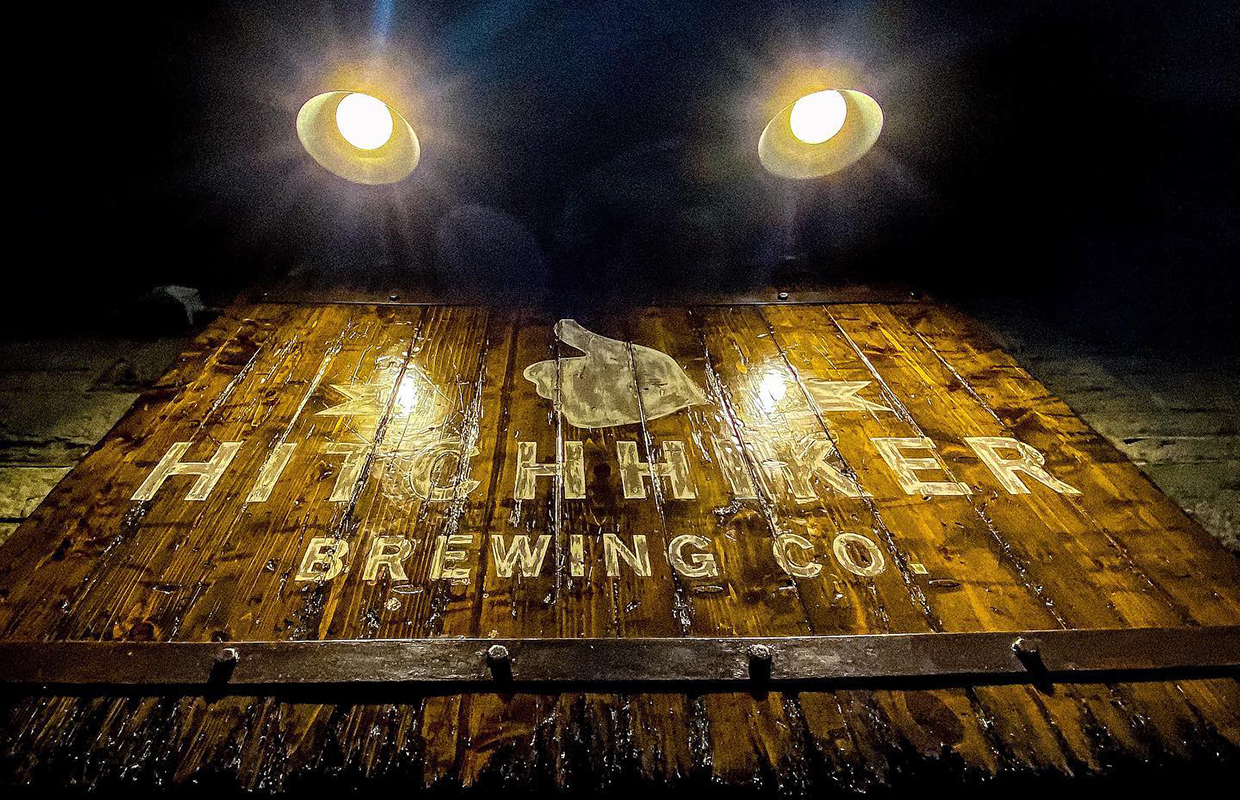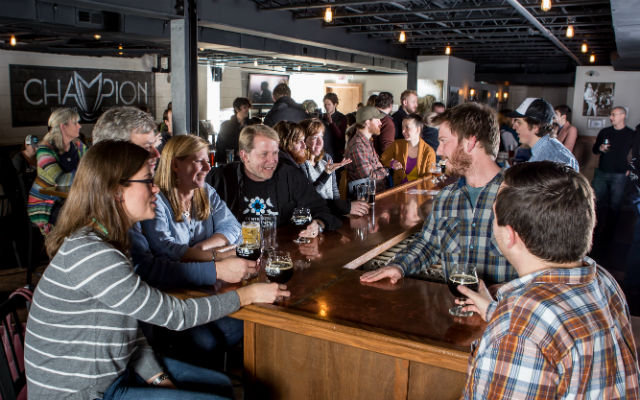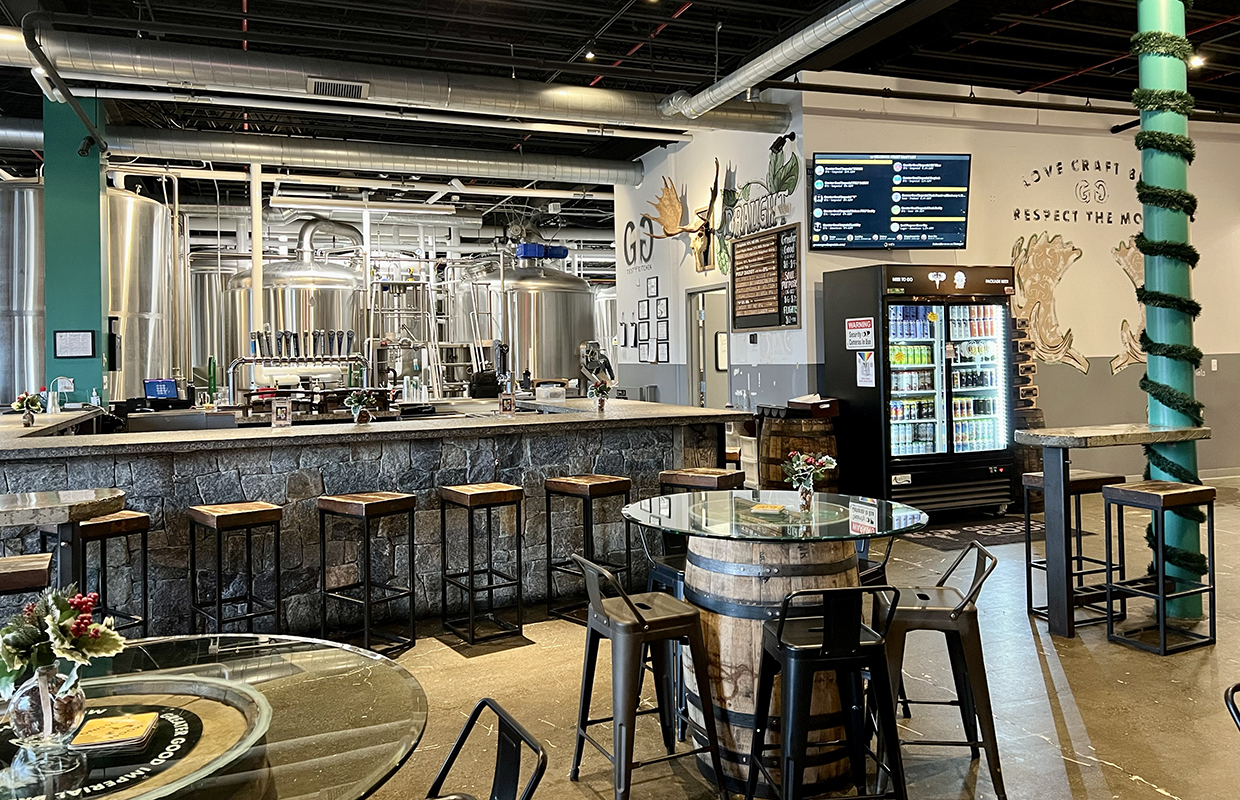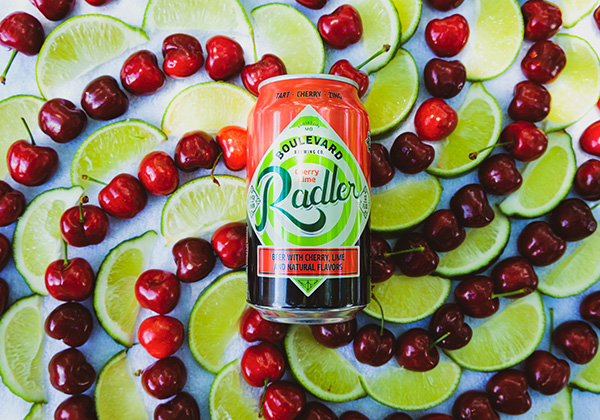
This is a part of a continuing series of Q&As with members of the brewing community from across the U.S.
Brewer Magazine will share business and personal insights from Brewmasters, Head Brewers, Brewing Managers, Sales Directors, QCQA Managers and others each weekend to help you get to know each other better in the industry and learn more to better develop your own brand.
Andy Kwiatkowski, Head Brewer & Dustin Michaels, Sales Director; Hitchhiker Brewing — Pittsburgh
BREWER: Since opening you have changed your portfolio completely. Are you finding that you have to follow trends, but still make sure that you’re appeasing common beer drinkers that are coming through as well? How did you make that decision when it came to that point? How is it adapted and continues to adapt?
KWIATKOWSKI: I think the progression kind of came naturally for us. We first started brewing whatever we wanted to make all the time, and that’s really fun. But, you know, there are only so many styles out there. When we first opened, we were the only ones in our area. And then a year later, another one opened up a few miles away. And then a year after that, someone opened up literally less than a mile from where we were. So how do we differentiate ourselves? Going around to other cities and seeing what’s going on. That’s what inspired us to step outside of our comfort zone. Go into Philadelphia, see what Tired Hands was doing. We started becoming more progressive, and trying to think of new and different things that we haven’t done before. We’ve done some weird stuff over the years. When we were a three barrel system, we had a lot of time to experiment and make weird things, because if it was a weird thing, and it didn’t turn out well … to dump three barrels, it’s not really the end of the world. So we kind of became very progressive pretty quickly. In 2015, we started doing Hazy IPAs, Milkshake IPAs, that sort of thing. Once we started doing those, then all of a sudden we used to do releases, and we would have six haves gone on a Sunday afternoon, from noon to six. So we’ve kind of stayed in that wheelhouse and kept an ear to the ground as far as what’s going on, from a beer’s perspective, nationally, locally, and then also just, what do we think would be interesting? What’s gonna get people in here to shell out $16 for a four pack, or stop in and pay $6.50 for a pint. That’s kind of how we fell into it. It’s kind of fit our identity ever since. Now we are trying to find that balance. … Now here we are making a 5% Kolsch. Or here in the middle of summer, a 5% Stout. Just things that I never thought we’d do [again], so the pendulum’s kind of swinging back towards that traditional thing. I think that is our original wheelhouse. So we’re kind of in the best of both worlds, I guess.
BREWER: With sales outside the taproom, are you seeing changes? Are some people just going back to those more traditional styles? How does working with the brew team help sales be able to make sure that you guys are putting out stuff that is getting bought?
MICHAELS: The wholesale side of the business also translates to kind of what we see in the tap rooms as well. If you think of a guy going out to a restaurant or a brewery, maybe they’re ordering beer slightly differently, but those trends are pretty consistent with each other. So it’s a lot of listening to what our accounts are saying. Also looking at orders and seeing trends. Seasonal changes are one thing, but when you see a massive swing and something that last year was killing it and this year, maybe isn’t, being small enough and being able to talk to the team and say, ‘I think this, whatever it is, has run its course and we’re seeing a lot more orders for whatever this is and transitioning production … we’re kind of staying on top of that type of stuff.
BREWER: Is there something new that you have added recently? Equipment, technology, personnel … that you have found to help benefit you over this last year?
KWIATKOWSKI: Canning line. We were running a pretty manual, canning line, 3-fill head … maybe nine cans a minute, if you’re lucky and on a good day. Just shortly before the pandemic, we upgraded to a new line, which is 28 cans a minute, roughly, when we first got it. We recently expanded a second lane on that. So now we’re pushing 70 cans a minute. I couldn’t imagine us in the pandemic — when we had to can everything — if we didn’t have that line, it just would have been a nightmare.
BREWER: If you could change something in the industry, what would the biggest change be for you in making craft beer better?
MICHAELS: The shift [away from] rotation nation. Someone could drink what you would ask them right after drinking it, they’d say this is the best beer I’ve ever had. And then they would never buy another four pack of it because they just want to check in something else or try something else. It’s easy to get caught up in that but there’s some really really good beers that just … who knows what happened to them because of situations like that. So that’s just a big pet peeve of mine. I don’t understand that. If I have the best beer I’ve ever had. I want it again immediately.
KWIATKOWSKI: No more fruited Sours, no more Smoothie Sours. And that’s kind of hard to say, because we do one a week here. And that’s always the beer that usually sells the best each week. But I’m just not a fan. It’s something I’d like to see go away. It’s just carbonated fruit and alcohol. It’s so easy. And it’s not beer. But that’s what people like. So that’s what we got to do. I mean, a lot of the stuff that we do is fun. I might not necessarily like to crush the whole sixtel or something of some of the beers that we make because they’re definitely on the sweet side. And it’s a lot of fun to experiment with the sour stuff. But that’s what people want. We have a staff meeting to talk with bartenders and talk to Dustin with what he’s hearing. What do people want from us? That’s something that everyone always wants. So it’s kind of hard to say no at this juncture in that regard. Especially because we’ve been doing it for four years now.
Responses edited for clarity and brevity




Be the first to comment